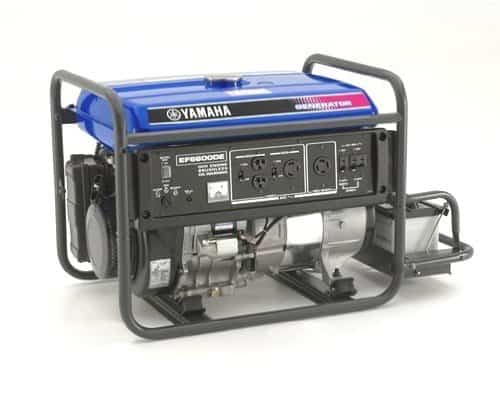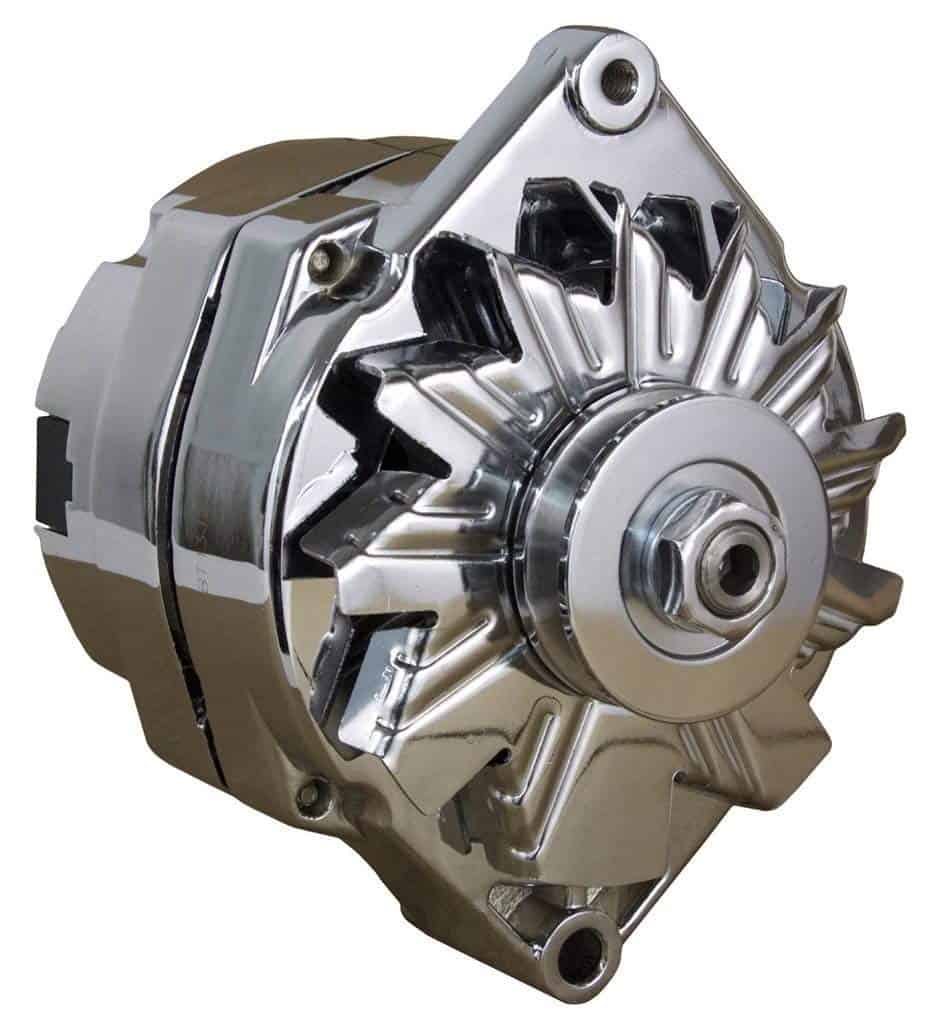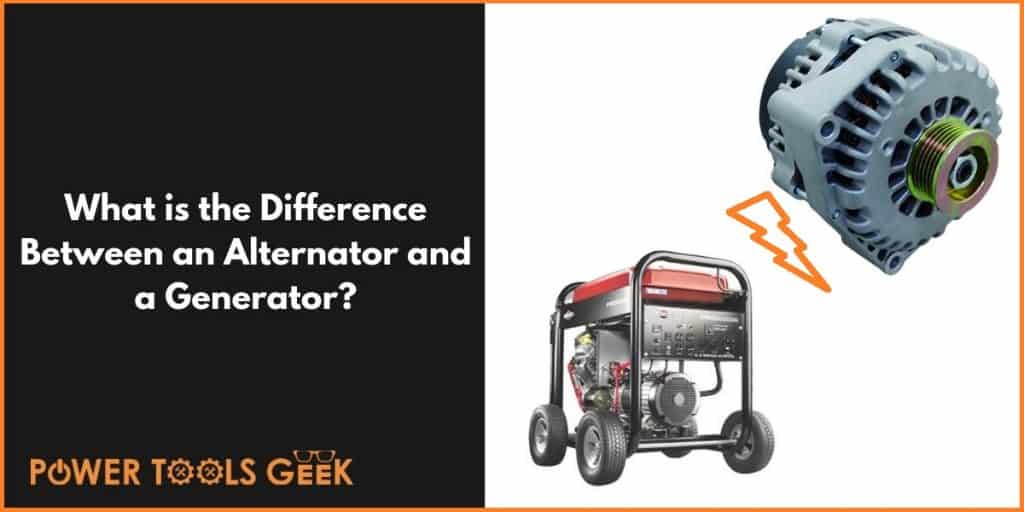What is the Difference Between an Alternator and a Generator?
Both generators and alternators are a primary method of producing electric power; they have a sole function of converting mechanical energy into electrical energy.
Their primary function might the same, but this is where their similarities come to an end.
There are a lot of differences between an alternator and a generator, especially when it comes to the physics, efficiency, and power output of the individual equipment.
In this article, we shall explore the differences between these two electrical devices.
But before we look at their difference, it would be prudent if we had a rudimentary understanding of each and how they work.
Table of Contents
Defining a Generator?
A generator, similar to an alternator, works by converting mechanical energy to electrical energy. However, the current produced by a generator can either be Alternating Current or Direct Current.
The production of electrical energy on a generator is based on the principle of Faraday's laws of electromagnetic induction.

This means that whenever the conductors cut the magnetic flux EMF induces, consequently resulting in the flow of current if the conductor is closed.
Ideally, generators are used for running large scale operations requiring high amounts of electrical energy. Expectedly, they are also quite bulky, thus requiring a lot of space.
However, unlike alternators, generators are polarized after installation, and this is to mean that these units can be used to charge the dead batteries.
Defining an Alternator
Like a generator, an alternator follows a similar mechanism of converting mechanical energy to electrical energy.
Also, known as a synchronous generator, this device converts mechanical power to AC electrical power at a specific voltage and frequency.
In an alternator, the magnetic pole of the rotor is excited by the mechanical energy. The rotation of the magnetic pole causes the magnetic flux to cut the stator conductor, and hence EMF induces in them. The spinning of the magnetic field alongside the stator results to a change in magnetic flux, and this leads to the production of current.

However, as we mentioned above, once the current is generated in an alternator, it's given as it is, without conversion to DC.
Unlike the generators, which are continuously generating power, alternators are energy-efficient as they produce energy only when required.
Again, alternators are commonly used in the automobile industry where the mechanical energy converted can be used to recharge the car's battery.
As you have seen, the sole difference between these two devices basically boils down to their mechanism of energy production and electric current following it.
And given that they both transform mechanical energy to electrical energy, it wouldn't be wrong to classify an alternator as a type of generator.
Tabular Comparison of Alternators and Generator
To give you a more detailed perspective, we have compiled a tabular comparison between these two devices.
Feature | Alternator | Generator |
|---|---|---|
Purpose | Converts mechanical energy to electrical energy | Converts mechanical energy to electrical energy |
Power Output | AC | Can produce either AC or DC |
Magnetic Field | Rotating | Stationary |
Energy efficient | Yes | No |
Polarization after installation | No | Yes |
Voltage | Only when required | Every time |
Dead batteries | Do not charge | Can charge |
Key Differences Between an Alternator and a Generator
1.Power Output: While both of these devices will convert mechanical energy to electrical energy, an alternator will convert this energy into AC only, while a generator can convert this energy into either AC or DC.
AC energy is commonly used in household and business appliances and is the standard electrical current found in your wall outlet. DC, on the other hand, is found in electronic devices that rely on a battery such as cell phones and alarm clocks.
2.Usage: Another distinction between these two devices lies in their usage. Alternators are commonly used in the automotive domain and are used to charge the car batteries. Generators, on the other hand, are commonly used in the residential or commercial setting as sources of power. Generators are also ideal for outdoor activities as well as emergencies.
3.Power product process: Though both devices generate electricity, their processes are different. In an alternator, electricity is generated courtesy of the spinning of a magnetic field inside the stator.
On the other hand, generators produce electricity is produced by the windings of wire in a fixed magnetic field.
4.Efficiency: Both of these devices rely on the principles of electromagnetic induction. However, the absence of a commutator in an alternator makes it a more straightforward machine, requiring less mechanical attention and detail. Again, an alternator on generator power as is required.
Going by the explanation above, don't make a mistake of thinking the generator is a weaker device, it's simply that alternators are more economical and efficient than generators.
5.Charging Dead batteries. Alternators, unlike generators, cannot be used to charge dead batteries. In fact, the use of an alternator on a dead battery can result in the burning of blowing up of the battery.
6.Polarization- With an alternator, there’s no need for polarization after installation. This is contrary to a generator as polarization is needed after installation.
7.Design-Design-wise, generators are bulky, and big, as they are often needed for use in high-power stations. Alternators, on the other hand, have a modest dimension, and most of them will fit in your car's drivetrain.
Conclusion
Above are the differences between an alternator and a generator. And as you can see, there are a ton of them.

